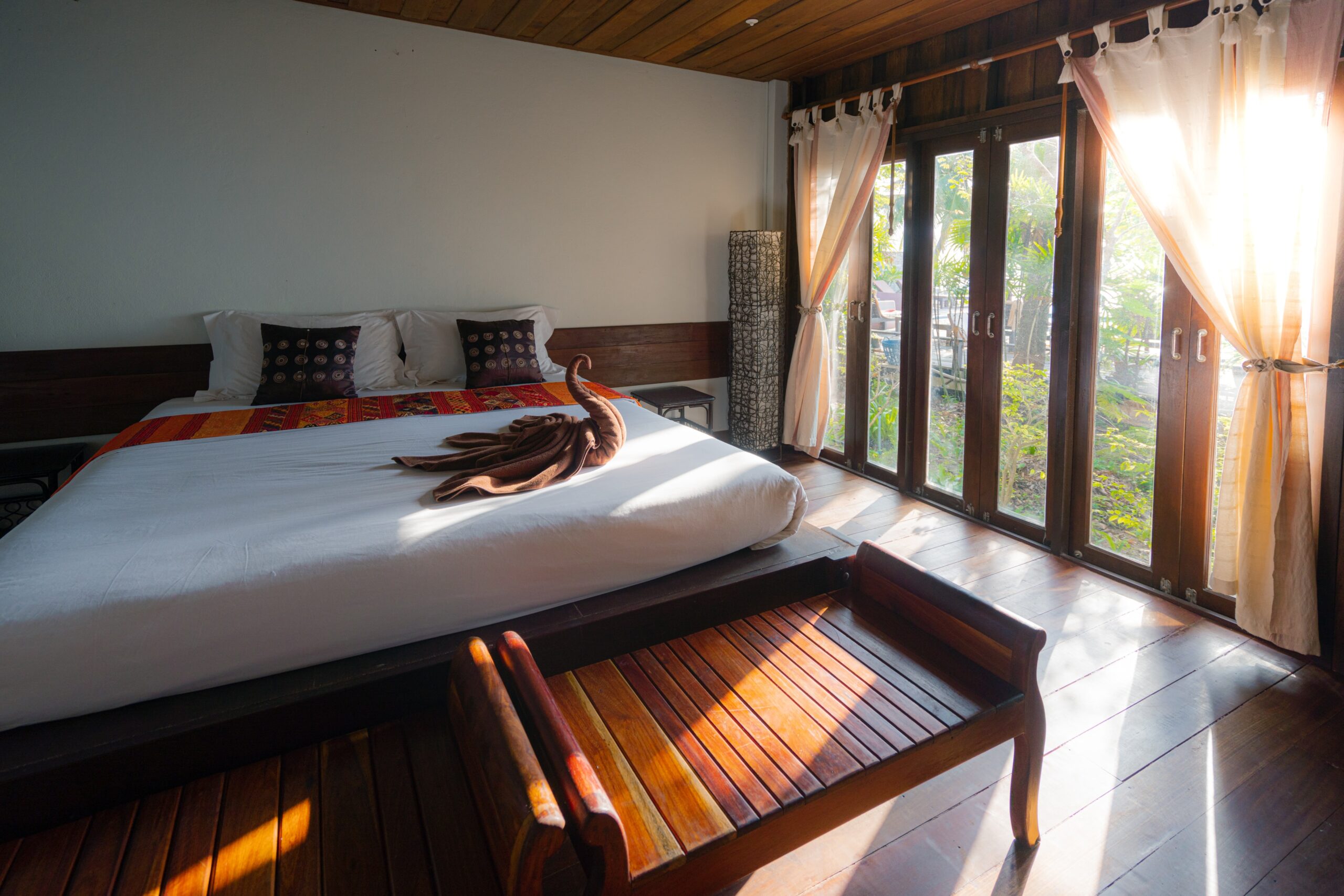Title: Rest and Relief: Benefits of Living in a Log Cabin
Log cabins conjure a picture of peaceful paradise. Many probably picture a cabin on a mountain, surrounded by spruce trees with a lake in a nearby valley, with a chill in the air and a truck in the driveway. It seems like it could be blissful, a nice place to visit, but many would not conceive of this scene as being a conducive life. However, the fact of the matter is that living in a log cabin out in nature has many benefits. In particular, there are several psychological and mental health benefits that can be attained by living in a more rustic environment.
Log cabins just ease the mind.
Living in a log cabin in a more rustic or natural environment can show significant decreases in stress, depression, and anxiety levels. This is achieved through a few different means. The first of these is an inherent quality of the cabin itself: it’s a very aesthetically pleasing building. The sight of wood, and trees in general, is a calming sight for most people. Living in a log cabin can help to reduce stress and anxiety levels by providing a calming atmosphere. The calming environment can also improve one’s ability to sleep, which is a crucial psychological benefit that can help to fight a slew of mental health issues. In addition to providing a calming environment, there is another major benefit to living in a log cabin; more often than not, they are situated in more natural environments. That exposure to nature is one of the greatest assets of living in a log cabin.
It’s Only Natural: Psychological Benefits of Nature
There is a great deal of research that shows exposure to nature to be an excellent means of preserving good mental health. In a study of 20,000 people, it was found that people who spent two hours a week in green spaces (either a grassy or wooded place like a park) were much more likely to report good health and mental well-being than those who did not. This time could be spent in a single visit or spread out over multiple visits. There are several studies that have shown nature experience to be associated with psychological well-being. These include pieces of evidence that links natural experience with increased happiness and subjective well-being; positive social interactions and engagement; a sense of purpose in one’s life; an improved ability to manage various life tasks; lastly, it seems to be linked to a decrease in mental distress. Living among nature has been associated with improvements in sleep, which in and of itself is a tremendous asset in preserving mental health.
Other Benefits of Nature Exposure
There are other communal and physical benefits that can come from living in a more natural setting. For example, a 2015 study of 2,000 people in the UK found that increased exposure to nature usually correlated with more communal cohesion and significantly lower crime rates. Moreover, Japanese researchers have speculated that aerosols found in forests may cause elevated levels of Natural Killer cells in people’s immune system. These cells fight infections and tumors. While these are not directly “psychological” benefits, they can contribute to more sound mental health. After all, if you feel physically healthy and physically safe, that can very well contribute to a decrease in stress. It also shows that you don’t necessarily have to live alone on a mountaintop to reap benefits from nature; communities can gather those benefits together.
Living in Natural Areas Sparks Physical Activity
If the above benefits can be found simply from exposure to nature, then imagine what they can do for a person who lives in a log cabin surrounded by nature. Living in a space where there is an abundance of nature can provide all of these benefits, but also allows for a third and final benefit that simple exposure to nature doesn’t necessarily provide. Living in a natural area often opens up the opportunity to live a more physically active life. Think about it; if you’ve got plenty of gorgeous scenery to walk or jog through, or a lot of space to grow a garden, or anything along those lines, you are more likely to spend more time outdoors in physical activity. This, too, has several psychological benefits.
Ways Exercise Improves Mental Health
Much like exposure to nature and living in a calm, peaceful place like a log cabin, exercise has a multitude of psychological benefits. In fact, there is significant overlap as to what benefits exercise and these other things can offer. For example, studies have shown that exercise can treat mild or moderate depression as well as can antidepressant medications. The Harvard T H School of Public Health found that running for just fifteen minutes a day or walking for an hour reduces the risk of major depression by 26%. Exercise doesn’t just fight depression; it is also a natural, extremely useful method for treating anxiety. Exercise relieves stress and tension, increases physical and mental energy, and releases endorphins that enhance your well-being. If you have anxiety, exercise is a great remedy; how much better if you can do it in beautiful natural scenery! Beyond strengthening mental health against such threats as depression and anxiety, exercise also offers other psychological enhancements. These include sharper memory/thinking, an increased self-confidence, and stronger resilience both physically and mentally to life’s challenges. Lastly, it offers that oh-so-wonderful benefit of increased sleep, which is crucial to good mental and physical health.
Conclusion: The Best of All Worlds
Living in a log cabin, or any rustic environment, provides ample psychological benefits that make life immensely more enjoyable and peaceful. The chance to live among gorgeous scenery and breathe fresh, unpolluted air is one you shouldn’t pass up. So, if you’re looking for a change of pace and a place to improve yourself, a log cabin is the perfect place for you!

